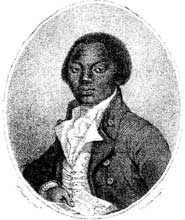A series of four events that will highlight both the history of the transatlantic slave trade and present day forms of forced labour (including people trafficking) will launch at the Watershed Media Centre on Tuesday 20 March at 6 p.m.
Jointly convened by historians and human rights experts at the University of the West of England and the University of Bristol, The Abolition 200 Series, will bring together a number of internationally known speakers.
Historian Madge Dresser who has organised the first event said: “The Abolition 200 Series presents a unique opportunity for us to learn more about the history and present day legacy of slavery and anti-slavery campaigns on both a local and global scale.
“The first event in the series, Representing slavery and abolition in Bristol will be an evening session at the Watershed investigating the way the transatlantic slave trade has been portrayed specifically in relation to Bristol. The evening will consist of two talks and a film screening of Clarkson, a locally made film about the conditions aboard the city's slave ships.
“We are very fortunate to welcome Dr Beth Kowaleski from the USA and Dr John McAleer from the National Maritime Museum, who will give us new insights into our local heritage. Given the controversy around Colston’s statue and the renaming of Broadmead, this talk should be of particular interest to most local residents as well as those with a particular interest in the city’s history.”
The second event in the series, Slavery: the slave trade and its aftermath will be held in the Queen's Building, University of Bristol on Wednesday 21 March at 5:30 p.m.
The event, hosted by Professor Steve Fenton of the University of Bristol's Department of Sociology will feature a talk by Jim Walvin, Professor of History at the University of York. Professor Walvin, international authority on the history of slavery and co-editor of the journal Slavery and Abolition will discuss what we can learn from history about the slave trade and its abolition. While providing a global perspective on the issues, his talk will also include additional commentary about the slave trade in Britain and Bristol.
The talk will be followed by a screening of the BBC television documentary The Slavery Business introduced by series producer, David Olusoga. David is a leading BBC film producer who has established his reputation with critical and insightful documentaries including his film about the genocide of the Herero in Namibia. He is a key figure in the BBC’s new generation of film producers and is committed to using film as a way of opening up our thinking about slavery and the slave trade.
Professor Fenton said: "This event will provide interesting new perspectives on the issue of slavery and how it has shaped the history of Bristol, Britain and the rest of the world. We are delighted to welcome both Professor Walvin and David Olusoga and also look forward to hearing from the audience who will be given the opportunity to ask questions and share their views. The Abolition 200 commemoration year is a great opportunity to reflect on an evil trade and its abolition."
The evening will conclude with an informal drinks reception.
